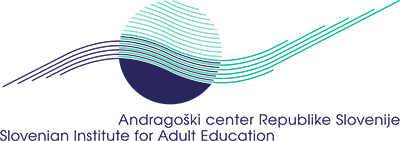a/a
Literacy Development 2009 – 2011
| Project | Literacy development and assessing and recognising non-formal learning 2009–2011 (shorter: Literacy Development 2009 – 2011) |
| Time period | January 2009 – December 2011 |
| Project value | 443.965,81 EUR |
| Financed by | European Social Fund (85 %), Ministrsy of Education, Science and Sport (15 %) |
| Contract caretaker | Marko Šiška, MSc, Ministrsy of Education, Science and Sport |
| Contact | Metka Svetina, Project Manager |
AIM
With this project, we wanted to contribute to development of methodologies and techniques for assessment, measurement and evaluation of effects of non-formal learning in adults and ensure development of suitable competences of professionals in the adult educators’ network for quality implementation of these processes. We assessed the part of non-formal education available to adults that contributes to development of literacy and key competences or encourages continuation or re-entry of adults into education, on the job market or into the society from the point of view of suitability, accessibility, quality and efficiency.
OBJECTIVES
The project includes two thematic sets: Literacy development and Assessment and recognition of effects of non-formal learning.
The main objectives of Literacy development were:
- Evaluation of applicable public programmes for literacy development in adults and programmes for training of adult education professionals;
- Creation of professional groundwork and renovation of programmes for the target groups and for adult education professionals;
Preberi več
- Creation of professional groundwork and scenarios for development of 5 ICT materials for adults;
- Preparation and pilot implementation of a new programme for young people who do not finish school and of a training programme for adult education professionals;
- Promotion of the project and dissemination of the results among the professional public.
The main objectives of Assessment and recognition of effects of non-formal learning were:
- Development of a tool for assessment and recognition of effects of non-formal learning in adults for the needs of employability and further education;
- Creation of a model for evaluation of knowledge, skills and competences and testing of said model;
- Training of professional associates at the Lifelong learning centre for implementation of processes of identification, documentation and evaluation of previously acquired knowledge and provision of counselling services;
- Testing and evaluation of the model for assessment and evaluation of effects and checking whether the pilot results can be implemented in other active Lifelong learning centres;
- Analysis of the scope and processes of evaluation of previous learning in the field of formal adult education;
- Preparation of joint professional groundwork for implementation and orientation of evaluation processes for previously acquired knowledge in the field of adult learning and education.
DESCRIPTION
The project is based on the objectives of the Human Resources Development Operational Programme 2007–2013, specifically the development priority Human Resources Development and Lifelong Learning, which underlines the fact that human resource development in modern society is not based only on formal but also on other non-formal types and forms of learning and education. Lifelong learning elements must be strengthened by inclusion and recognition of different formats of education and learning, by ensuring existence of mechanisms for inclusion of adults into education even after acquired basic skills and by provision of necessary infrastructure to achieve these goals.
Read more
In the scope of the project, we undertook an important professional reflection on Slovenian success with inclusion of vulnerable groups of adults in education and training and on good practices and guidelines for further work of adult educators in this field in the coming years. We made several important steps forward in development of the concepts of assessment and recognition and in implementation of this field in adult education. Organisation of meetings and connection of holders of different professional and political activities in this field into a joint work group, exchange of views and analysis of cases from current practice of assessment and recognition can significantly improve the possibility of comprehensive systemic regulation of non-formal knowledge recognition in the future. We will be able to continue our work in the scope of the follow-up project in the 2011-2014 period, when our greatest challenge will be implementation of renewed and new programmes into practice and facing the development challenges.
KEY ACHIEVEMENTS
The results of the project and its contributions to the development of the literacy development field are:
- Three independent evaluation studies, which are also the first scientific evaluation of the effects of applicable public programmes for literacy development in Slovenia since their existence in the current form;
- An evaluation plan that can be used as an example of good practice for creation of other similar plans;
Read more
- Publication Faces of literacy (Obrazi pismenosti);
- Creation and pilot testing of a new, shorter programme for young people who do no complete their schooling;
- Creation of a conceptual design for multimedia learning materials for the needs of vulnerable groups;
- Renovation of all programmes on the content, structural and didactic level;
- Development of 4 tools/instruments to support the process of assessment and recognition of non-formal knowledge;
- Definition of the process of evaluation was presented in a methodological manual for implementation of evaluation processes.
- Professional groundwork for systemic regulation of evaluation and recognition in adult education;
- Leaflet Literacy development;
- Leaflet Assessment and recognition of non-formal knowledge;
- Final conference of the project Creating new opportunities for adults.
ESF projects:
Competences of Adult Education Professionals 2016–2018Survey of Adult skills PIAAC 2013–2015Education and Training for Adult Education Professionals 2011–2014Literacy Development (2011–2014)Education and Training of Adult Education Professionals 2009–2011Literacy Development 2009 – 2011Guidance for employees 2016–2022Adult Competences Development 2016–2022Competences of adult education professionals 2018–2022

